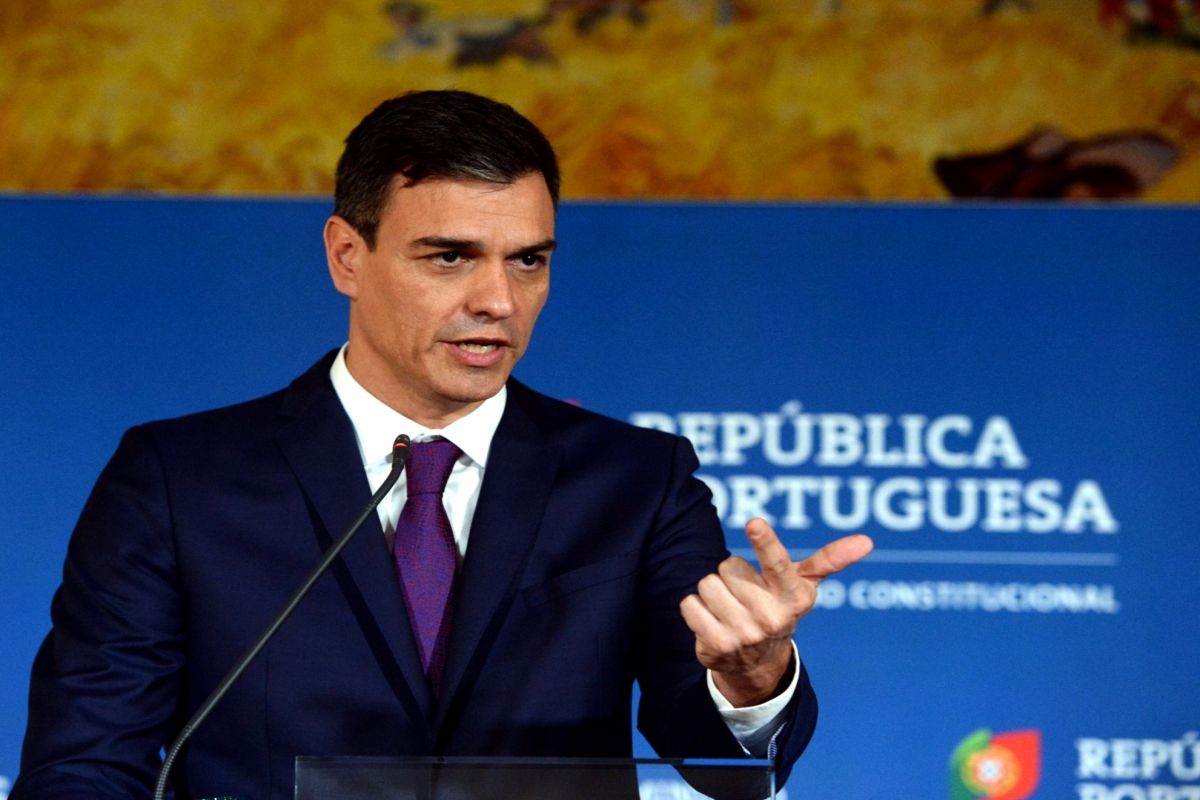Red Carpet
In the realm of global economics, China has long been the magnetic epicentre, drawing in foreign investors with promises of boundless opportunities and unprecedented growth.
The Socialists have the best chance of regaining power but will need to forge a fragile alliance with the far-left Unidos Podemos (United We Can) party, which saw its number of MPs fall from 42 to 35.

Spanish Prime Minister Pedro Sanchez ( File Photo: IANS)
Sunday’s renewed tryst with democracy in Spain ~ for the fourth time in four years ~ has failed to effect a forward movement. The deadlock persists, though the Socialists have topped the stakes and the far-right has doubled its seats. While the second mirrors the trend in different parts of Europe, the Socialists have failed to secure enough seats to form the next government in Madrid.
There has been no psephological swing and the verdict has once again been remarkably indecisive though it could well boost the morale of the Rightists. The voters have not been able to break the political deadlock which has plagued the country since 2015.
The outlook is as yet uncertain as to whether the acting Prime Minister and Socialist Party leader (PSOE) candidate, Pedro Sanchez, will continue to helm the government for a while. With 99 per cent of the votes cast, the acting centre-left government won 28.1 per cent of the votes, but lost three seats, dropping from 123 to 120, and coming well short of the 176 needed for a majority in the 350-seat Lower House.
Advertisement
Europe will concede that the performance of Vox, the far-right party, has been impressive. It emerged on the national stage only six months ago when it won 24 seats in inconclusive elections in April, and this time more than doubled the number of its MPs to 52.
It is more than obvious that as important as the economic blight, the fresh bout of sub-regional jingoism, indeed the secessionist crisis in Catalonia, had fuelled support for Vox. Last month’s crackdown on the separatists appears to have scuppered the prospects of the Socialists.
The country witnessed mass protests and street violence for three weeks after nine separatist leaders were sentenced to up to 13 years in prison for sedition, sentences that have been binned by voters as “outrageous”.
The surge in support for Vox signifies a protest by voters over the perceived failures by the Socialist government to deal with weeks of riots in Catalonia.
Arguably, there are only two options for forming a government: the Socialists could team up with Podemos with the help of smaller parties and the separatist entities.
Or the parties on the right could abstain and allow the Socialists to form a minority government. Vox and the mainstream conservative Popular Party (PP) have benefited from the collapse of the liberal Ciudadanos (Citizens), which has won only 10 seats, a dramatic fall from the last election when it was ranked in the third place with 57 seats.
The Socialists have the best chance of regaining power but will need to forge a fragile alliance with the far-left Unidos Podemos (United We Can) party, which saw its number of MPs fall from 42 to 35. In the fogbound scenario, the contours are bound to be hazy. A direly divided country will now have to contend with a fractured mandate.
Advertisement